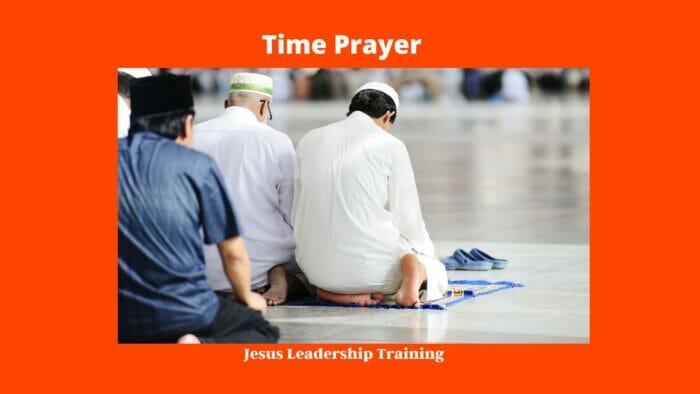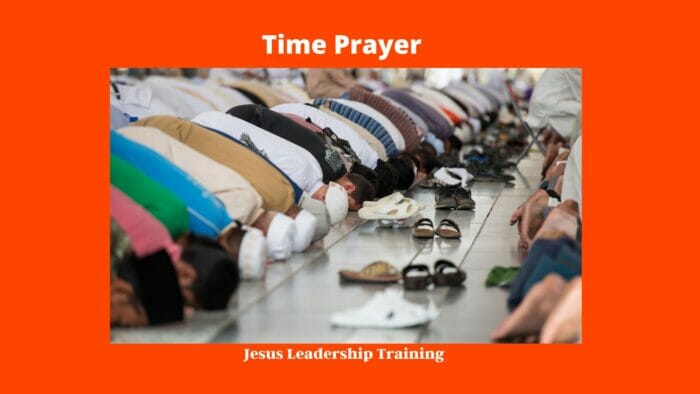So you’re interested in the concept of “Time Prayer,” huh? It’s such a fascinating topic because it beautifully blends spirituality, discipline, and the essence of time. 🕒🙏
Table of Contents
Time Prayer: A Confluence of Discipline and Spirituality
Time prayer is a concept deeply ingrained in many religious traditions, most notably in Islam, where five daily prayers (Salat) are prescribed at specific times of the day. But the concept isn’t limited to any one faith. Many spiritual paths encourage setting aside particular moments for prayer, meditation, or reflection. Why? Because time is sacred. It’s a gift that, once spent, can never be regained.
Why Is Time-Based Prayer Significant?
- Consistency: Having designated times for prayer helps you build a consistent spiritual routine. Consistency is the mother of mastery, even in spirituality.
- Mindfulness: Scheduled prayer times allow you to pause, disconnect from the world’s chaos, and be present in the moment. It’s like pushing the ‘reset’ button on your mental state.
- Divine Connection: Some traditions believe that prayers offered at certain times have special significance or a more profound impact. Think of it as tuning into a spiritual “prime time.”
- Personal Accountability: Time-based prayers act as a spiritual check-in, helping you evaluate your actions, decisions, and state of mind at different times of the day.
- Community Bonding: In some religious traditions, congregational prayers at specific times foster a sense of community, bringing people together in a shared spiritual experience.
- Physical Benefits: Believe it or not, regular breaks for prayer can also be good for your body. The act of pausing, reflecting, and possibly even changing physical postures can be refreshing.
So, whether you follow a faith that prescribes specific prayer times or you’re someone who’s spiritually curious, the practice of time-based prayer offers numerous benefits. It’s not just about ticking off a religious obligation; it’s a life-enriching practice that can add depth and meaning to your daily routine. 🌟
Time Prayer: A Universal Concept
The concept of setting aside moments for prayer isn’t confined to any single religion or belief system. Whether it’s the Islamic call to prayer five times a day, the Christian tradition of praying before meals, or Hindu chants at the break of dawn, prayer has been a timeless practice for connecting with the Divine and reflecting on one’s life journey.

Time Prayer Across Different Faiths
Each faith adds its own cultural and spiritual layers to the practice of time prayer. From the invocations recited at certain hours to communal prayer gatherings, these acts of devotion serve to build a sense of community and spirituality among believers.
Below is a handy table that highlights various religious faiths and their practice of timed prayer. This gives a snapshot of how each tradition uniquely incorporates this beautiful discipline into daily life. 🌼
| Religious Faith | Number of Daily Prayers | Specific Times | Brief Description |
|---|---|---|---|
| Islam | 5 | Fajr, Dhuhr, Asr, Maghrib, Isha | Muslims pray at five specific times throughout the day, following the sun’s position. |
| Christianity (Roman Catholic) | Various | Morning, Noon, Afternoon, Evening, Night | The Liturgy of the Hours consists of prayers at different times of the day. Some devout Catholics also recite the Angelus thrice daily. |
| Judaism | 3 | Shacharit, Mincha, Maariv | Jewish people traditionally pray three times a day, corresponding with the sacrifices in the ancient Temple. |
| Hinduism | 3+ | Dawn, Noon, Dusk | Hindus generally pray at least three times a day, with some traditions encouraging more frequent prayer. |
| Sikhism | 5 | Japji Sahib, Jaap Sahib, Anand Sahib, Rehras Sahib, Kirtan Sohila | Sikhs have a practice of praying at five different times, focused on connecting with God and the community. |
| Buddhism | Various | Usually mornings and evenings | While not strictly time-based, many Buddhists engage in daily meditation and prayer, often at sunrise and sunset. |
| Bahá’í Faith | 3 | Dawn, Noon, Dusk | The Bahá’í have three obligatory prayers to be recited daily. One can choose from short, medium, and long prayers but should do so facing the Qiblih (direction of Bahá’u’lláh’s tomb). |
| Shinto | Various | No strict timing | While Shinto doesn’t have fixed times for prayer, offerings and prayers at shrines are a daily practice for many. |
I hope this table helps you see the vibrant tapestry of timed prayer practices across the world. 🌍 It’s fascinating how each faith has its own unique way of connecting with the Divine, isn’t it? 🌟
Personal Time Prayer: An Intimate Connection
What if you’re spiritual but not religious? Or perhaps you’re still seeking? Personal time prayer allows for the same connectivity and reflection, but without the structured belief systems. It’s about finding quiet moments in the chaos to connect with something greater than yourself—be it nature, the Universe, or your own inner wisdom.

10 Reasons for Personel Timed Prayer
The practice of timed prayer has been deeply rooted in various faith traditions for centuries. It’s a meaningful way to incorporate spirituality into daily life, but why is it so special? Let’s dive into some of the key reasons why a time of prayer is important. 🌻
1. Routine & Discipline
- Setting specific times for prayer helps in building a disciplined life. It’s akin to having spiritual “appointments” that one commits to, no matter what.
2. Mindfulness & Focus
- Knowing there’s a designated time to connect with a higher power brings a sense of mindfulness and focus to the act. It’s not rushed or squeezed in; it’s a planned, conscious act.
3. Spiritual Connection
- Timed prayers serve as regular check-ins with the Divine, creating a more robust and consistent spiritual connection.
4. Unity & Community
- When people know they are praying at the same time as others in their faith community, there’s a strengthened sense of unity and collective spirituality.
5. Time Management
- Oddly enough, setting aside time for prayer can help improve time management skills. You learn to structure your day around these sacred moments, which can enhance overall productivity.
6. Emotional & Mental Well-being
- Scheduled prayer can serve as a form of emotional regulation. It provides set times to pause, reflect, and let go of accumulated stress.
7. Reinforces Values & Beliefs
- Regular, timed prayer acts as a reminder of the principles and beliefs that are important to you, reinforcing them in your daily life.
8. Historical & Cultural Continuity
- In many faiths, the practice of timed prayer dates back thousands of years. Participating in such a tradition connects you to a rich history and shared cultural experience.
9. Enhanced Introspection
- Knowing that you’ll be stepping into a moment of prayer encourages you to consider what you’ll be praying about, promoting introspection and personal growth.
10. Counteracts Negativity
- With the hustle and bustle of life, it’s easy to get swept up in negativity. A regular time of prayer offers a respite and helps to realign your perspective in a more positive direction.
I hope this gives you some insights into why so many find timed prayer to be such a pivotal part of their spiritual lives. It’s more than just a ‘to-do’ on a list; it’s a foundational element that enriches multiple facets of human existence. 😊 🌈

Islamic Time Prayer
In Islam, prayers or Salah are a pillar of faith, and adherents are encouraged to pray at five specific times a day.
Islam has a rich tradition of timed prayers, known as “Salah,” which are one of the Five Pillars of the faith. Let’s break down some key facts about Islamic timed prayers in a nifty table, shall we? 😊
| Fact Category | Information |
|---|---|
| Number of Prayers | Five daily prayers: Fajr, Dhuhr, Asr, Maghrib, Isha |
| Language | Arabic |
| Direction | Facing the Kaaba in Mecca |
| Starting Age | Children usually begin around the age of 7 |
| Prayer Duration | Varies, usually 5-10 minutes per prayer |
| Cleanliness | Ablution (Wudu) is required before each prayer |
| Clothing | Modest clothing that covers the body |
| Physical Actions | Standing, bowing, prostrating, and sitting |
| Congregational | Can be performed alone or in a group |
| Call to Prayer | Known as the Adhan, announced from a mosque |
| Night Prayer | Optional “Tahajjud” prayer can be performed at night |
| Days of Importance | Fridays and during Ramadan are especially significant |
| Origin | Dates back to the time of Prophet Muhammad (PBUH) |
The practice of Salah is incredibly multi-dimensional, providing spiritual, physical, and emotional benefits. It’s not just about the words spoken, but the way in which they are said, the physical motions, and even the times and directions all have significant meaning. Plus, it’s a wonderful way to create regular, spiritual “check-ins” throughout your day.
Hope you find this table informative and easy to understand! 😊🌟
When Is Prayer Time for Muslims?
Muslims follow a specific timetable for their prayers, generally defined by the position of the sun. Starting from Fajr before dawn to Isha after twilight, the time for each prayer is fixed but varies depending on geographical location.
Muslim Time Prayer: The Five Pillars
These five time prayers include Fajr, Dhuhr, Asr, Maghrib, and Isha. Each prayer has its own set of units, known as rak’ahs, and specific supplications, allowing Muslims to cultivate discipline, self-control, and a deep relationship with God.
The Five Pillars of Islam are the foundation of a Muslim’s faith and actions. One of these pillars is Salah, the practice of performing five daily prayers at specified times. Let’s look at how Salah, or timed prayer, fits into the larger framework of the Five Pillars of Islam. Here’s a table to make things super clear! 🌟
| Pillar Name | Description | How Time Prayer (Salah) Fits In |
|---|---|---|
| Shahada | The declaration of faith | Salah is a practical demonstration of the Shahada, affirming the oneness of God and the prophethood of Muhammad through action. |
| Salah | Performing five daily prayers | This is the Pillar we’re talking about! Timed prayer is performed five times a day: Fajr, Dhuhr, Asr, Maghrib, and Isha. |
| Zakat | Giving a portion of one’s income to the needy | Salah often includes supplications for the well-being of the community, reinforcing the spirit of giving embodied in Zakat. |
| Sawm | Fasting during the month of Ramadan | The daily fast is broken with the Maghrib prayer, and the day starts with the Fajr prayer, integrating Salah with the practice of fasting. |
| Hajj | Pilgrimage to Mecca, if able | During Hajj, special prayers and rituals are performed, and the daily five prayers continue as usual, emphasizing their foundational importance. |
Each Pillar is interconnected, and Salah plays a central role in maintaining this spiritual ecosystem. Timed prayer not only fulfills its own Pillar but also complements the other four, creating a holistic practice that covers various aspects of life and spirituality.
Time Prayer in Different Cities
Time Prayer Chicago
In Chicago, Muslims utilize various methods, including mobile apps and printed timetables, to keep track of the accurate times for the five daily prayers.
Time Prayer Houston
In Houston, Islamic centers often announce prayer times through loudspeakers, and the community gathers for prayers, making it a powerful community event.
Time Prayer Philadelphia
Similar to other American cities, in Philadelphia, the Islamic community also relies on digital platforms to synchronize their prayers and ensure everyone can partake in this spiritual routine.
Fajr Time Prayer
Fajr, the pre-dawn prayer, holds a special spiritual significance. It serves as a peaceful start to the day and an opportunity for personal reflection.
Fajr is the first of the five daily prayers in Islam, and it holds a special significance as it marks the beginning of a new day. Here’s a table to give you all the essential details about the Fajr prayer:
| Feature | Information about Fajr Time Prayer |
|---|---|
| Time Window | From the break of dawn until just before sunrise. |
| Number of Rak’ahs | Two Rak’ahs (units of prayer). |
| Language | Primarily Arabic, but personal supplications can be in any language. |
| Direction | Facing the Kaaba in Mecca. |
| Special Recitations | Surah Al-Fatihah (The Opening) and another Surah or verses from the Quran. |
| Posture | Includes standing, bowing, and two prostrations. |
| Significance | Emphasizes submission to God and spiritual preparation for the day ahead. |
| Spiritual Benefits | Achieves mindfulness, offers time for reflection, and instills discipline. |
| Physical Benefits | A gentle way to stretch and wake up, enhancing alertness and well-being. |
| Community Aspect | Can be performed individually or in congregation, but the latter is preferred. |
| Additional Sunnah | Two additional voluntary Rak’ahs may be performed before the obligatory prayer. |
Fajr sets the tone for the day, allowing Muslims to start off with spiritual focus and intention. It’s like a daily spiritual “reset button” that helps you center your thoughts and prioritize your actions for the day.
Hope this table helps you get a fuller understanding of the Fajr Time Prayer
Maghrib Prayer Time
Maghrib, the prayer just after sunset, is often considered a time to give thanks for the day’s blessings and opportunities.
Maghrib is the fourth of the five daily prayers in Islam, and it’s quite special as it marks the close of the day. If Fajr prayer is a sunrise of spiritual awakening, then Maghrib is like a sunset that lets you pause and reflect. Here’s a table that breaks down all the key details for you:
| Feature | Information about Maghrib Time Prayer |
|---|---|
| Time Window | Just after sunset until twilight (approximately 10-15 minutes). |
| Number of Rak’ahs | Three Rak’ahs (units of prayer). |
| Language | Primarily Arabic, but personal supplications can be in any language. |
| Direction | Facing the Kaaba in Mecca. |
| Special Recitations | Surah Al-Fatihah (The Opening) and another Surah or verses from the Quran. |
| Posture | Includes standing, bowing, and two prostrations for each Rak’ah. |
| Significance | A time to break the fast (if fasting), reflect on the day, and give thanks. |
| Spiritual Benefits | Promotes gratitude, mindfulness, and spiritual recentering. |
| Physical Benefits | Offers a moment of pause and bodily movement after a day’s work. |
| Community Aspect | Can be performed individually or in congregation, but the latter is preferred. |
| Additional Sunnah | Two additional voluntary Rak’ahs may be performed after the obligatory prayer. |
Maghrib is more than just a prayer; it’s a time to take stock of your day. It helps you step back from the hustle and bustle and connects you to a higher purpose. Whether you’re reflecting on the challenges you faced or the small victories you achieved, Maghrib reminds you to be thankful for them all.
Isha Prayer Time
Isha, the final prayer of the day, offers a serene backdrop for Muslims to reflect on their actions, ask for forgiveness, and seek guidance for the future.
let’s dive into Isha, the fifth and final daily prayer in Islam. Think of it as the closing chapter of your day, a time for spiritual reflection before you call it a night. Here’s your go-to table for all the details:
| Feature | Information about Isha Time Prayer |
|---|---|
| Time Window | Starts after the twilight has disappeared and continues until halfway between sunset and sunrise (midnight). |
| Number of Rak’ahs | Four obligatory Rak’ahs (units of prayer). |
| Language | Primarily Arabic, but personal supplications can be in any language. |
| Direction | Facing the Kaaba in Mecca. |
| Special Recitations | Surah Al-Fatihah (The Opening) and another Surah or verses from the Quran. |
| Posture | Includes standing, bowing, and two prostrations for each Rak’ah. |
| Significance | A time for spiritual closeness, asking for protection through the night. |
| Spiritual Benefits | Enhances mindfulness, adds a sense of peace and serenity to end the day. |
| Physical Benefits | Helps to relax the body and mind before sleep. |
| Community Aspect | Can be performed individually or in congregation, but the latter is preferred. |
| Additional Sunnah | Two voluntary Rak’ahs may be performed after the obligatory prayer. |
| Optional Witr Prayer | An odd-numbered set of Rak’ahs (usually 1, 3, 5, etc.) often prayed after Isha. |
Isha provides a beautiful opportunity to disconnect from worldly concerns and connect with your spiritual self before you sleep. It’s the punctuation at the end of a sentence, the moment where you can say, “Alhamdulillah (Praise be to God) for another day.”
Prayer Time Al Ain
In Al Ain, a city in the United Arab Emirates, prayer times are announced from the minarets of mosques, and people from all walks of life join in this spiritual journey.
If you’re interested in prayer times specifically for Al Ain, a city in the Emirate of Abu Dhabi, United Arab Emirates, you’re in the right place. Just like in other parts of the Islamic world, the faithful in Al Ain also observe the five daily prayers. The timings can be a bit specific to the geographic location, so it’s always good to double-check local time tables. Here’s a quick rundown:
| Feature | Information about Prayer Times in Al Ain |
|---|---|
| Fajr Time Window | Begins at the first light which appears horizontally along the horizon. |
| Dhuhr Time Window | Starts right after the sun has crossed the zenith point (midday). |
| Asr Time Window | Depends on the method followed; can be either one shadow-length or two. |
| Maghrib Time Window | Begins immediately after sunset. |
| Isha Time Window | Starts after the twilight has disappeared. |
| Method Used for Calculation | Umm al-Qura, ISNA, MWL, etc. Different methods might yield slight variations. |
| Congregational Prayers | Many mosques in Al Ain where prayers are performed in congregation. |
| Jumu’ah (Friday Prayer) | Usually around the same time as Dhuhr, but includes a sermon. |
| Qibla Direction | Toward the Kaaba in Mecca. |
| Special Considerations | During Ramadan, Taraweeh prayers are performed after the Isha prayer. |
| Local Variations | Some mosques might offer additional Sunnah or Nafl prayers. |
In Al Ain, you’ll find many mosques, from grand ones to more humble neighborhood spots, where these prayers are observed. As in many parts of the UAE, the call to prayer, or “Adhan,” will be broadcast from mosque speakers, so you’ll always have a melodious reminder when it’s time to pray.
Final Thoughts: 7 Positive Action Steps for a Strong Prayer Life
- Set a Regular Schedule: Consistency is key in any form of spiritual practice.
- Choose a Sacred Space: Having a dedicated space for prayer can deepen your experience.
- Involve Your Community: Share this sacred time with loved ones or your spiritual community.
- Educate Yourself: Learn about the significance and history of time prayer in various cultures.
- Reflect and Forgive: Use this time to forgive others and yourself for any shortcomings.
- Seek Guidance: Ask for wisdom, guidance, and strength during your prayers.
- Stay Open: Be receptive to the messages or insights that come during or after prayer.




